Sandra Breka was appointed to the Board of Management of the Robert Bosch Stiftung, Germany’s second-largest foundation, in September 2017. Since then, she has led a process which has involved the foundation turning itself inside out – redrawing its International Understanding and Cooperation programme area. The process led to the termination of all its existing grants and programmes. Why such an upheaval and what will the foundation look like now?, asks Charles Keidan.
All change at Robert Bosch Foundation
What happened at the Robert Bosch Foundation that led to the changes?
We currently have five focus areas: health, science, society, education and international relations, with the latter taking up more than 50 per cent of our funding for operational and grantmaking activities. In 2017, there were changes within the foundation’s leadership – both the Board of Trustees and the Board of Management. Most importantly, the international context is changing, which was the biggest catalyst. A number of trends are now highly influential in shaping our world and we wanted to look at them in a systematic way and at how the different regions are evolving with a view to these trends. In addition to commissioning studies and consulting a broad range of international experts, we made sure that the process was highly participatory. In the end, it included about half the foundation’s staff. We asked them to work in groups across departments. This approach created a new dynamic. We essentially designed this strategic review and realignment to be a learning journey for the whole foundation.
What made the process different from previous reviews?
It was more systematic, very inclusive, agile, longer and more far-reaching in its results than any review in the past. We didn’t know at the beginning how the process would be implemented, nor did we anticipate any results. For a long time, we were not able to give much reliable orientation concerning the future. We invested more staff time and more money in this process than ever before.
We have to acknowledge that we do some things better than others, and identify what those are and who can do them better. So the ratio will shift – more grantmaking and less operational programmes.
If you’d asked me at the beginning of the process, I would have predicted we will close down 30 per cent of our projects, keep maybe 30 per cent as they are, and adapt 40 per cent, but after half a year, we felt that closing down everything and starting from scratch was what we needed to do. When we saw that changing how we work would be the next step, we talked to many other foundations that had been through similar processes. The strongest advice we received was not to relabel things and to be consistent in the implementation of results. Probably the most important decision of our Board of Trustees was to exit from all existing programmes. That altered the dynamic completely.
The momentum of the changes in the international relations areas also inspired us to do the same in our areas of health, science, education and society. The results are expected by the end of 2019. All of it is derived from Robert Bosch’s legacy in view of the challenges of our time and our experience to date.
How much money have you invested?
The process will end in the summer of 2020 and by then we will have invested about €2 million, all with a view to achieving a fundamental strategic alignment between our work areas and the most pressing topics globally.
And the issues the Robert Bosch Foundation will now focus on are conflict, climate, migration and inequality?
Yes, these are the four topics we will focus on in the area of International Understanding and Cooperation. We are currently developing specific approaches within each topic because they are very broad and we have to focus. The developments over the 55 years since the foundation’s establishment had resulted in an eclectic and very broad portfolio. We had valuable projects, but in the end we lacked a clear profile. Our main objective now is to remain focused. Another priority is to approach the four topics as a nexus and try to work on the intersections between them, climate and conflict, climate and migration, conflict and migration, conflict and inequality. It will be a challenge to explore these intersections.
To take one of your new areas of work, climate: what do you plan to do now?
While we have worked on issues of sustainability in the past, climate has not been part of our portfolio to date. Influenced by the First World War, Robert Bosch’s focus was on international understanding to guarantee peace and stability. He would have wanted us to work on and support cooperation on the existential global issues. Such cooperation today implies all relevant stakeholders. Climate change is one of these issues.
We are developing expertise and we are already recruiting staff with relevant experience. We will invest in developing the expertise of our existing staff, as a continuation of what happened over the past 24 months. As of January 1st 2020, we will start with pilot funding and develop partnerships. We want to become part of the larger community working on climate. There is a big cohort of foundations and we hope our approach will be complementary to what is being done.
Many of the foundations whom we had initially consulted have come to us and asked us how we came to our decision and how we are managing the transition. A number of them are saying they want to do something similar.
How much money do you think you will allocate to climate issues in the coming years?
Amid all the changes, we are also realigning the project budget allocation system. To date, we have allocated our full project budget to our focus areas. From 2020, part of the budget will not be allocated in advance but will be kept for more entrepreneurial grantmaking, which will allow our departments to react to new developments and come up with joint endeavours. So we’re starting with a seed development budget of about €2.5 million in climate for the first months. Based on the results, we will allocate additional funding in the middle of 2020. In the future, budgets are likely to change from year to year.
So will there be a significant amount of new funding from the Robert Bosch Foundation to address climate change?
It is significant for us, though maybe not in overall terms. If you think that we currently spend about €29 million for international work and are now focusing on four areas, and not on ten, that is significantly more for each topic.
We want to become part of the larger community working on climate. There is a big cohort of foundations and we hope our approach will be complementary to what is being done.
You also mentioned a change in your approach, in particular the ratio between operating programmes and grantmaking work.
Up to now, we have on average been 60 per cent operational and 40 per cent grantmaking. We will increase the grantmaking component and will work in partnerships given the complexity and size of the issues. I think our strength has and will always be that we both operate programmes and make grants. But we have to acknowledge that we do some things better than others, and identify what those are and who can do them better. So, yes, the ratio will shift – more grantmaking and less operational programmes.
What is your thinking about investments, particularly in light of your new climate portfolio?
We have a limited, relatively conservative, investment portfolio. We have started to open that portfolio to more impact investment and we will assess the results next year. Right now, we are in the middle of changing our project allocation budget. But the issue of investments is a relevant question for us as it is for others.
All of your longstanding programmes are ending. How have you managed the exit process with existing grantees?
Quite frankly, it was a dramatic change. Some of the programmes have been around for 35 years with established partnerships which were doing well. On the other hand, ending all of the programmes made it easier both internally and externally. It would have been impossible to explain to some of our partners why our relationship with them was being ended and others weren’t.
The foundation sector in Europe has always been less dynamic than the American one, even though European philanthropy evolved considerably in the last 20 years.
Even so it must still have been extraordinarily difficult to terminate relationships with longstanding partners.
Yes, it was very hard, not only externally, but internally, because people who work at foundations are strongly invested. They are as invested in the issues as they are in the personal relationships they have with these partners. We communicated to the whole staff every decision that we took in the process and when we didn’t know what the result of part of process would be, we were open about it. That honesty and authenticity was very important. We also informed our partners early on about the process. When we decided on full exit, we talked to them personally. We made many last-time investments to allow for smoother transition, either to a different kind of programme, or have an end which would be responsible and phased. While most of them were sad, many showed great respect for the process and acknowledged that the topics we chose were the right ones. We have an International Alumni Centre which is supporting us in thinking about how we can continue to work not just with existing institutional partners but the many individuals who have been involved in our programmes. We are not giving up that community. Interestingly, many of the foundations whom we had initially consulted have come to us and asked us how we came to our decision and how we are managing the transition. A number of them are saying they want to do something similar.
Do you think this appetite for change suggests a wider concern among European foundations that they are lagging behind in terms of their relevance to the issues faced by society and therefore need to reinvent themselves?
I think many would agree that the foundation sector in Europe has always been less dynamic than the American one, even though European philanthropy evolved considerably in the last 20 years. Partly, that’s because the legal framework is different, as is the societal context and the role of government. There is a much larger and more developed philanthropic culture in the United States where philanthropy takes on many tasks that, for instance in Germany, are the state’s responsibility. That said, there are big changes worldwide and I think the European foundation sector will have to respond.
But do you expect some foundations to undergo similar changes to those you have made to be more fit for purpose?
The beauty of the foundation world is its variety. There aren’t that many large European foundations, the majority of foundations are small and they are often single-issue. But given the challenges we face globally and domestically, many are reviewing what their contribution to those issues should be. This will also be true for those working internationally. While numbers in giving are growing in Germany and Europe, they are not growing as fast as they are worldwide. Wherever we operate, we engage with the local foundation sectors, in Africa, in Asia, who will be important partners for us. They have different approaches to philanthropy and that is shaping the way philanthropy is seen there. It’s a relationship which is changing dramatically.
Do you think foundations are not as comfortable as they should be in challenging one another about what they’re doing?
Absolutely. But, during our peer review, we talked openly among colleagues and to staff at different foundations about how we were struggling with the process, and we received sincere answers and a lot of good advice. There are so many meetings in the sector – these need to be as self-reflective and self-critical as possible. Since we are such individual beasts, it’s very easy to claim ‘we are very different from everybody else’. In essence, if we talk about the same issues, we have to challenge each other on what we do and how we work in the best sense of a peer review.
Another debate in philanthropy is whether it is diverse enough. This issue of Alliance has a focus on feminist philanthropy and includes a discussion about the representation of women at senior levels in German foundations. Do you envisage a future in the foundation sector where there’s a more equal representation of both women and other groups within the foundation world?
The majority of our staff is female, so on the staff level, the gender issue is the other way around. It is different on the top leadership level where you find only few women. I think feminist philanthropy is a difficult term because it doesn’t necessarily suggest diversity. If you look at the inequality of a certain segment of society you often enhance the inequality of another segment. For me, diversity implies being as representative as possible and that’s difficult. First of all, as a German foundation, we should be representative of German society. But the real difficulty is how to make sure that what you do in your issue areas and where you work is somehow represented in your staff or in forms of cooperation. We will not be able to reflect the world that we work in globally within our foundation. This leads to the need for more participatory approaches to grantmaking.
Looking back, what has been the most difficult part of the change process?
One of the biggest questions we faced was how to establish a sense of urgency for change within an organisation which, because of its funding structure, doesn’t have it to begin with. You can only challenge yourself by talking to the most diverse set of actors internationally, through conversations with peers who are on the cutting-edge of the development of the sector. The sector can have a tendency to be self-sufficient, sometimes complacent, although it sees itself as spearheading progress which is almost in itself a contradiction. How and when do you need to change to be relevant, competitive and to have an impact? That’s what foundations have to ask themselves continuously.

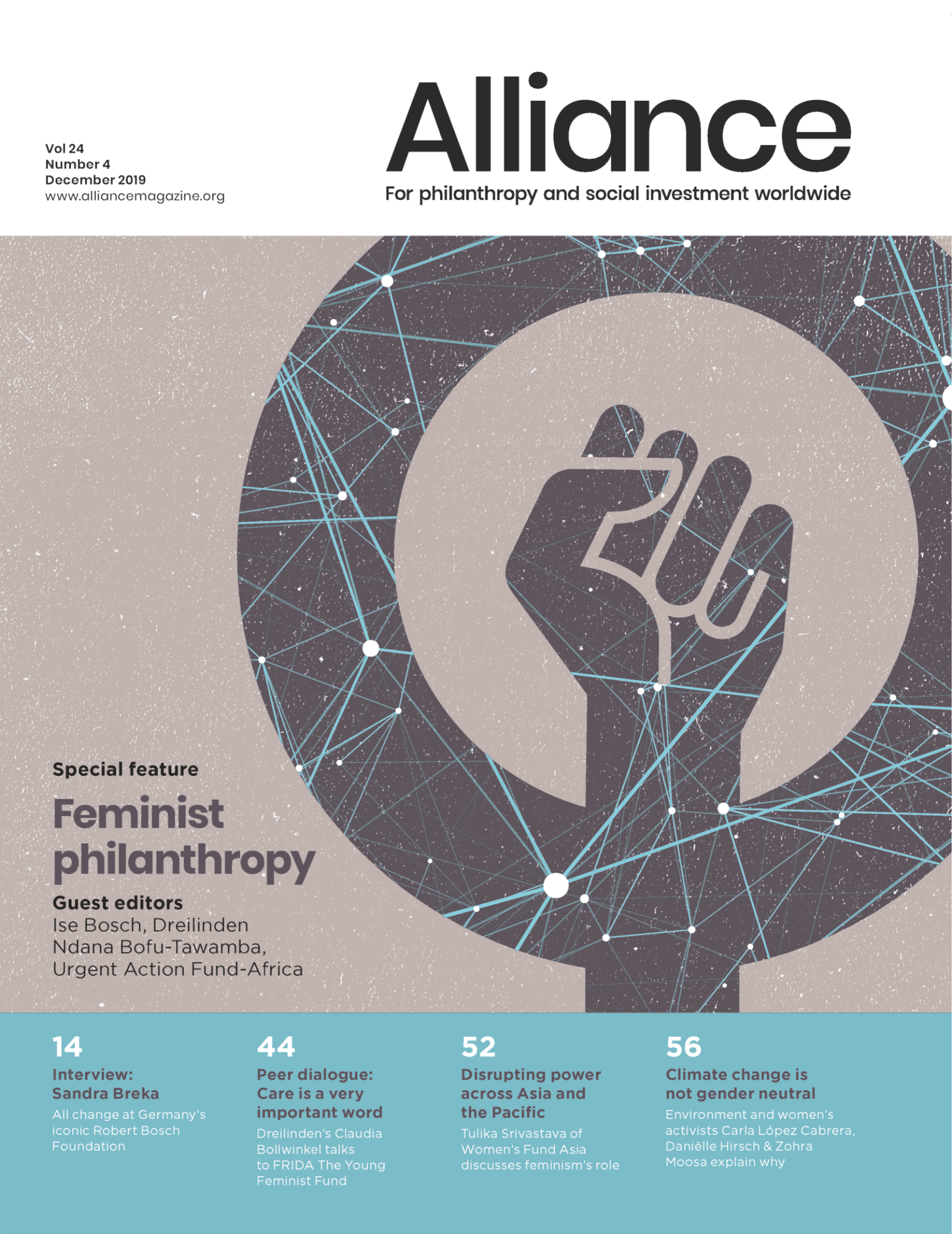
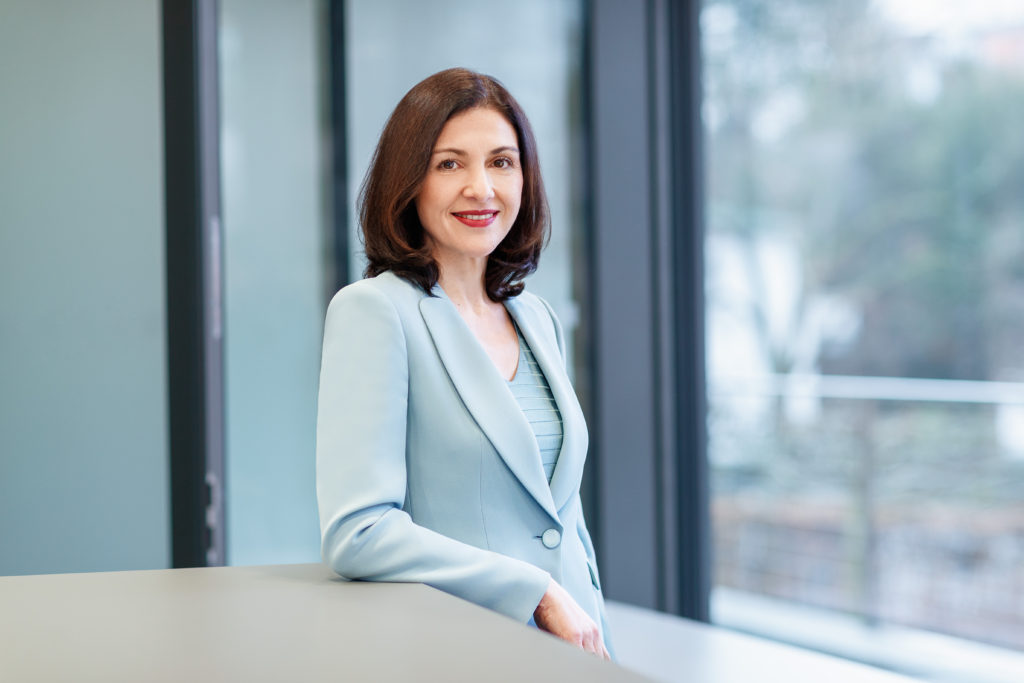
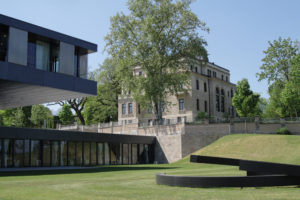

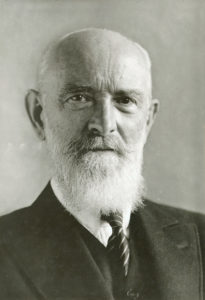
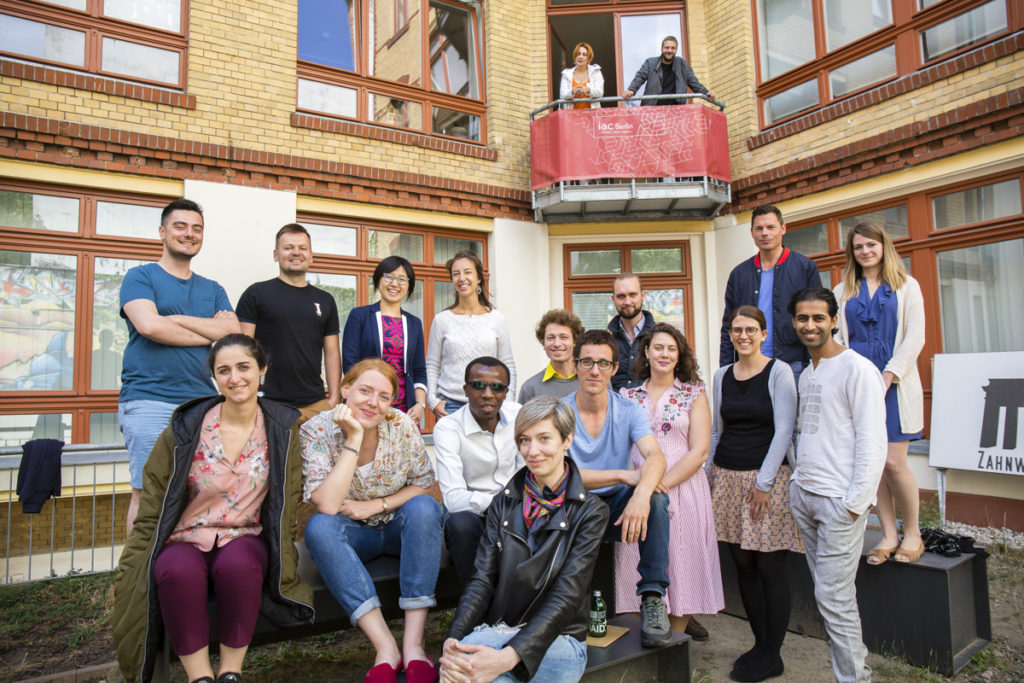





Comments (0)